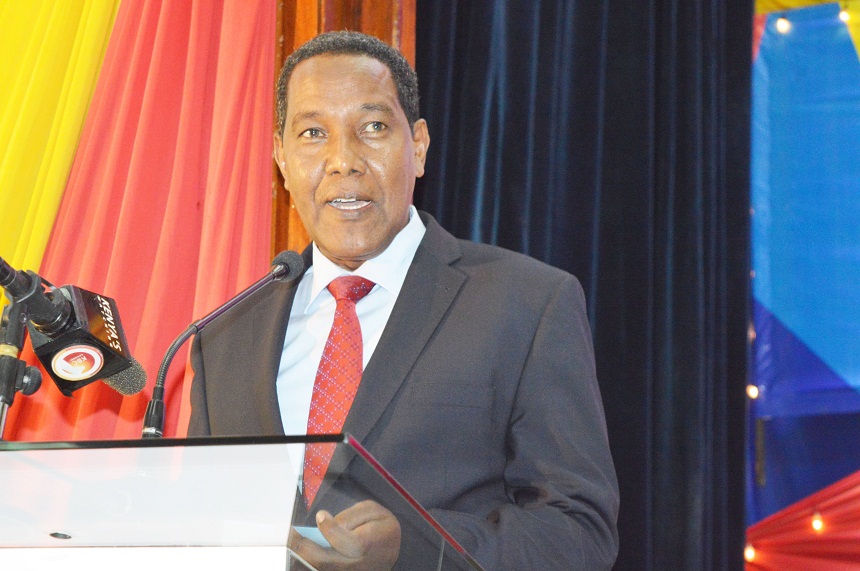Former State Department for Cooperatives Principal Secretary Ali Noor Ismail is a happy man.
He says that the cooperative sector achieved a lot during his tenure.
“I was appointed as the PS under the Jubilee Government in Labour and later on at the State Department for Cooperatives in 2015,” he says.
He had a short stint as Environment and Forestry PS from 2018 to 2019, before he went back to Cooperatives.
He explained: “With my background in human resource and in the banking industry,” I think the previous Government saw my potential to serve in Cooperatives.”
During the seven years he served in the Cooperatives, the sector reported remarkable achievement notably in the legal and regulatory framework.
There was the creation of the Central Liquidity Facility, Deposit Guarantee Fund and the National Cooperative Policy, whose efforts to have them in place is still undergoing.
In his reflection, he said the Central Liquidity Facility will enable Saccos facing liquidity challenges borrow from their peers.
“There are Saccos with good liquidity and if there are those facing cash flow challenges, the facility will enable them borrow from other Saccos at low interest rates than going to banks,” he said.
Besides, Saccos will enter into the national payment system where they will be able to allow members cheque.
Besides, the Non-withdrawable Deposit Taking Saccos are under the armpit of Sasra.
“Saccos reported tremendous growth in terms of asset base, deposit portfolio and loan book,” he noted.
During an exclusive interview with Sacco Review at his NSSF Building, Ali Noor said Kenya’s cooperative societies notably Savings and Credit Cooperative Societies are recognised globally.
“The creation of the Sacco Societies Regulatory Authority (Sasra) is the best thing that ever happened as members have confidence that there is someone watching over their savings,” he said.
One such Sacco whose performance has left him satisfied is the Kenya National Police Deposit Taking Sacco board Chair David Mategwa for his commendable effort to improve its performance.
“Mategwa has done a commendable job for improving the society to become one of the most stable and profitable in the country,” he said.
The PS stated that this would have not been easy were it not for the numerous resources they have spent in education, information and training their members, delegates and board directors.
With other Saccos learning from other just like from Kenya National DT Sacco, he projected a future where the country will attain a higher economic growth.
Already, Kenya’s cooperative sector is the best in Africa and is ranked 7th globally and with some effort, it will drive the much needed economic growth.
“I look forward to a time when Kenyans are members of a cooperative society as they will be able to enjoy immense benefits,” he says.
Ali Noor noted that Kenyans will better progress as members of a society rather than as individuals.
Asked on how best Saccos should report performance, he proposed a hybrid of dividend payouts and stability.
However, he said that the performance of Saccos should also balance between paying dividends as well as having stable entities.
“We need to have a scenario where Saccos pay dividends but as well as retain some profit to address any financial shocks,” he advised.
This, he noted, can only happen when members are taken through trained on the importance of having a stable Sacco whose performance is not only through dividend payout but also stable.
Ali Noor expressed confidence that ongoing efforts to revitalise agriculture will consequently improve the cooperative movement.
There are a number of reforms targeting the agricultural sector notably coffee, cotton and pyrethrum and once in place, this would improve the cooperative sector.
“The producer based cooperative societies would be stronger once the sectors are revitalized and this is seen through various stakeholders involved in the reforms,” he said.
Kenya’s economy, he observed depends on agriculture and once the sector is improved, cooperatives will improve.
Though a lot has changed such as the diminishing land size, which might not see coffee production go to its glorious past, he said that there are some parts of the country that can embrace the crop.
“With the reforms, though there is some improved production, farmers are now paid better,” he said.
Kiambu County for example which was a coffee growing zone has since seen massive investment in real estate and with the advent of urbanization, he admitted that it would b e a huge task to get there.
“We cannot avoid urbanization and part soft Kiambu that grew coffee have since been developed but the efforts can improve the production,” he noted.
However, he advised Sacco leaders to be cautious when investing in other entities such as buying commercial banks.
Saccos are more or less like commercial banks and should not entertain any idea of commercial bank buyouts.
A Sacco operates more or less like a commercial hence no need for a Sacco to buy a bank,” he warned.
However, he says that despite all the achievements within the sector, poor governance and leadership remain a challenge.
The former Kabarnet High School alumni feels that it is immoral for Sacco managers to misuse resources under their watch.
“It pains me that members have sacrificed and exercised delayed gratification to save in a Sacco only for this to be misused,” he said.
He expressed optimism that some of the Government efforts will curb this and hold those behind responsible to account.
“It is not enough to let those behind go scot free but be made to pay,” he said, arguing that working with the Ethics and Anti-Corruption Commission is the best way out.
“When members have confidence that their savings are safe, the Sacco subsector can grow and become one of the best in the world,” he said.
Profile
Attended primary schools in Mandera and Wajir before joining Mandera High School for his O level.
Attended Kabarnet High School for his A levels and was admitted for a BA at the University of Nairobi.
Holds a Bachelors of Laws from University of Nairobi and Master of Science, Human Resource Development from University of Manchester.
Joined Kenya Posts and Telecommunications and corporation as a personnel and rose to Manager, Manpower Planning and Job Evaluation
Joined national Bank of Kenya where he served in various capacities in the human resource department.
He was the Deputy Managing Director, Business Support Services at the national Bank of Kenya between 2011 and 2013 before he was appointed PS, Labour.
Served as member of Pangani Girls High School Parents and Teachers Association, where his daughter was a student.
He was board member, National Environment Management Authority, NEMA.
Trustee, National Bank Staff Pension Scheme.
Chairman, Executive Council of Kenya Institute of Bankers.
By our reporter
Get more stories from our website: Sacco Review. For comments and clarifications, write to :Saccoreview@shrendpublishers.co.ke
Kindly follow us via our social media pages on Facebook: Sacco Review Newspaper for timely update



